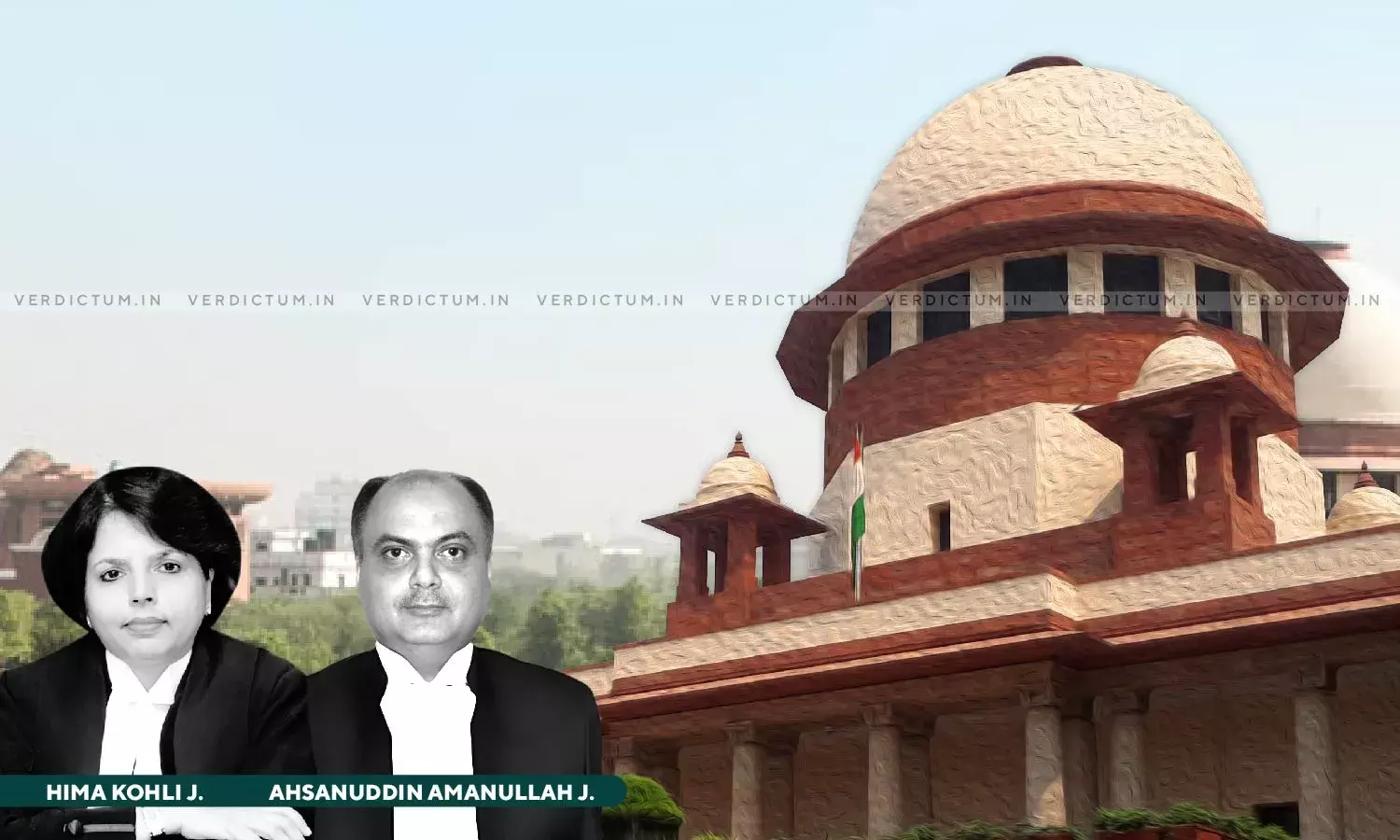Vacancy To Post Doesn't Automatically Create Valuable Right For Employee Claiming Retrospective Accelerated Promotion: Supreme Court
The Supreme Court observed that vacancy to a post does not automatically create a valuable right in favour of an employee claiming retrospective accelerated promotion.
The Court explained that an employee cannot lay a claim for being promoted to the next higher post merely on completing the minimum qualifying service. “By no stretch of imagination can a right for being appointed to the promotional post be treated as a vested right,” the Court stated.
A Bench of Justice Hima Kohli and Justice Ahsanuddin Amanullah observed, “Even otherwise, assuming that there was a vacancy to the subject posts, it would not have automatically created a valuable right in favour of the respondent for claiming retrospective promotion to the next higher post. It is only when an actual vacancy arose that the respondent was granted the benefit of accelerated promotion and that too on going through the prescribed process.”
AOR Navin Prakash appeared for the appellants, while AOR Amit Pawan represented the respondent.
The Bihar State Electricity Board (appellant/Board) challenged the order of the Division Bench of Patna High Court which directed the Board to promote the employee (respondent) to the post of Joint Secretary. By the time the High Court delivered its judgment, the employee had superannuated, and the Board was directed to grant him all benefits retrospectively.
The employee, belonging to the Scheduled Caste category, was initially appointed as a Lower Division Assistant and subsequently received promotions over the years. He was promoted to the post of Joint Secretary in 2003 but contended that his promotion should have been effective from 1997 when the post became vacant.
Earlier, the Board passed a Resolution determining the Kal Awadhi for Scheduled Caste/Scheduled Tribe and General Category candidates for promotion from one grade to another grade for various categories of employees. The said Resolution fixed the Kal Awadhi for promotion from the post of Under Secretary to Joint Secretary for three years.
The Single Bench of the High Court held that merely because the employee had completed the period contemplated under the Kal Awadhi for the next higher post would not be a criterion to shift his date of promotion from 2003 to the year 1997.
The Supreme Court explained that the right to be considered for promotion is a fundamental right guaranteed under Articles 14 and 16(1) of the Constitution. However, this right does not translate into a vested right for being necessarily promoted to a higher post. The Court noted that promotion should only be granted from the date it is given, not retrospectively unless the service rules specifically provide for such a situation.
“No employee can lay a claim for being promoted to the next higher post merely on completing the minimum qualifying service. Such an interpretation of the resolution would be fallacious and virtually result in nullifying the settled law of a right inhering in an employee for being considered for promotion being a fundamental right,” the Court remarked.
Consequently, the Bench observed, “The Division Bench of the High Court ought to have refrained from interfering with the findings returned by the learned Single Judge who has rightly held that merely because the respondent had completed the Kal Awadhi for promotion from the post of Under Secretary to Joint Secretary, would not necessarily entitle him for appointment from the date the post fell vacant. This is not a case where the respondent has been deprived of promotion to the next higher post, nor is it a case where the action of the Board was guided by any malafides or colourable exercise of power.”
The Court restored the decision of the Single Bench and set aside the order of the Division Bench of the High Court.
Accordingly, the Supreme Court allowed the appeal.
Cause Title: Bihar State Electricity Board & Ors. v. Dharamdeo Das (Neutral Citation: 2024 INSC 549)




